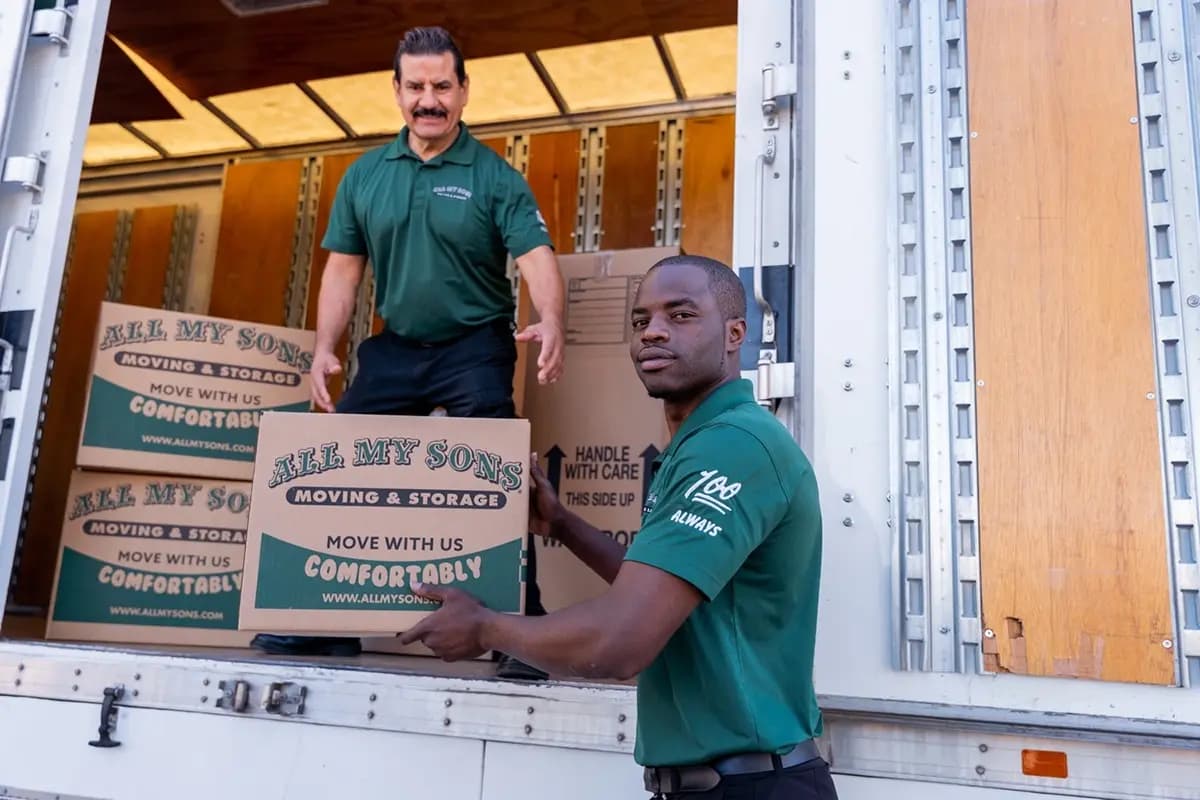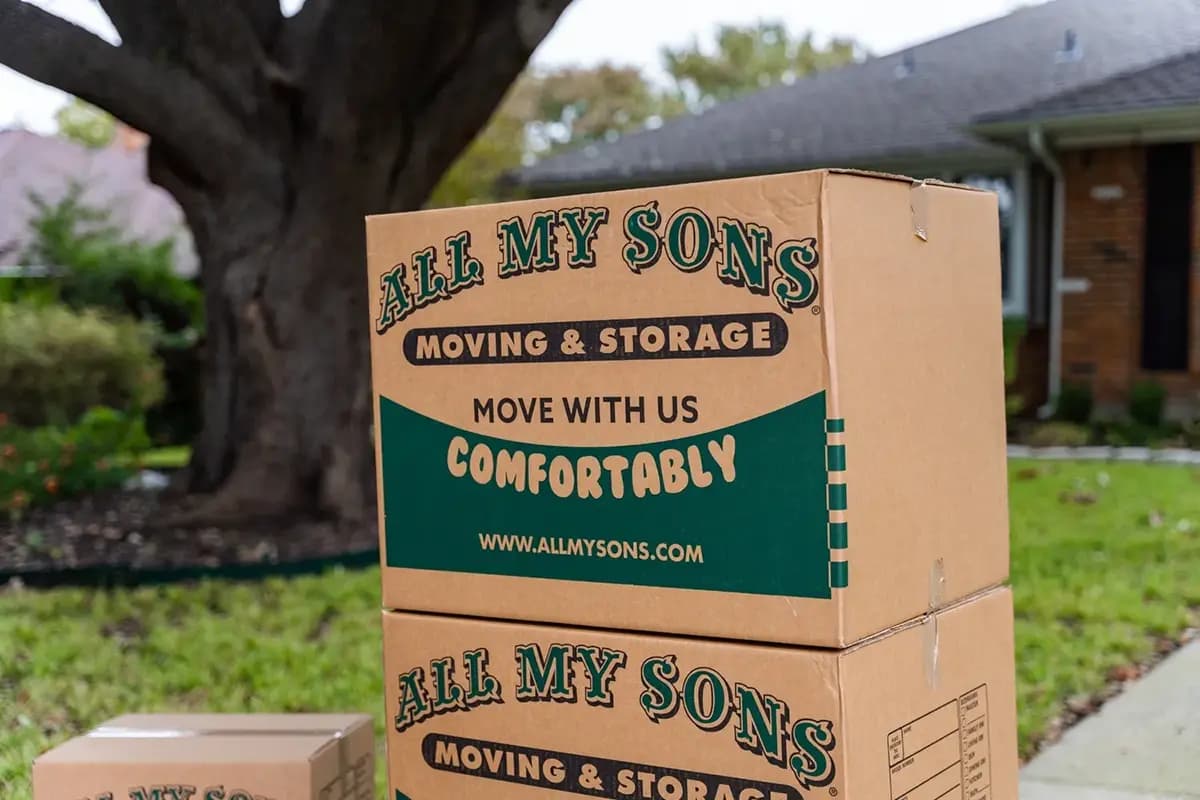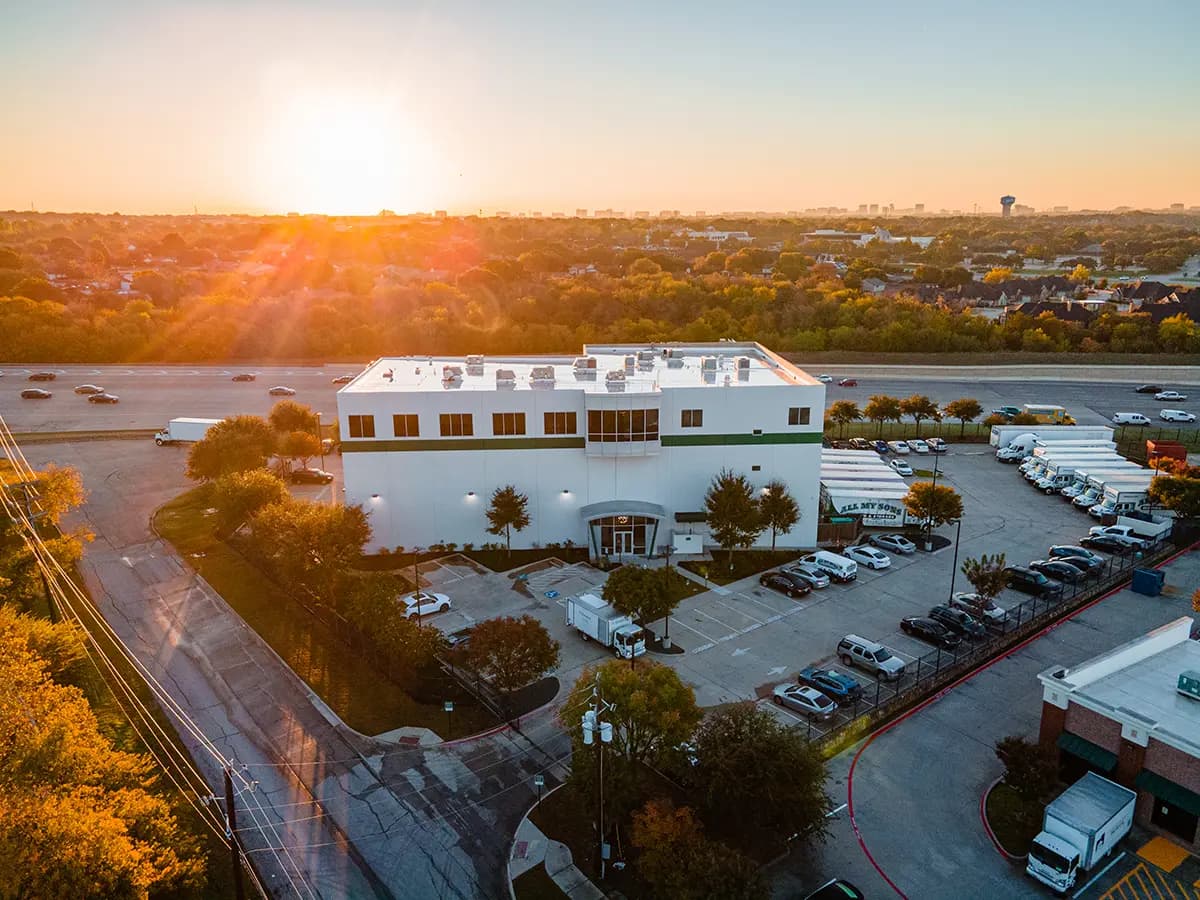A Checklist for the Renter
This moving checklist for renters can help you get started on your move. Renting a house or moving to your next apartment? Moving for renters is a little different than moving for homeowners.
All My Sons Moving & Storage has been in the business of helping companies and families make a smooth relocation for almost 30 years and we understand how stressful moving can be. An organized move is an efficient move, so we have compiled these moving checklists to help our customers get ready for their move.
Use this checklist as a starting point for your move to your rental.
BEFORE YOUR MOVE:
Determine Your Budget
Before you begin packing, you should sit down and decide how much money you have to make your move. Some of the standard moving expenses include purchasing packing supplies, hiring movers, and truck rental. You should also think about some of the hidden costs of moving like cleaning fees, utility startup costs, and new furniture items. Once you have a solid idea of how much you have to work with, you can make good financial decisions during your move.
Research Movers
When you move, you want to find the right professionals for the job. You should search for moving companies in your local area that are licensed and insured. Read customer reviews to see what others are saying about them and get quotes to compare prices. If you are taking the DIY approach to your move, then you will need to ask around among your family and friends to see who is available to help with your move.
Purchase Packing Supplies
Take inventory of what you own and intend to pack and purchase packing material to help you box everything up. You will probably need boxes, packing paper, bubble wrap, and tape. You might be able to find free or low-cost moving supplies by asking around with friends, family, neighbors, and social media groups.
Book Your Movers
You should have your movers officially booked by at least a month prior to your chosen move date. If you are moving by yourself, make sure you have your moving truck or equipment reserved in advance and that any helpers you have recruited have cleared that day on their schedule.
Declutter
Your move will feel much more manageable if you decide ahead of time to part ways with items you no longer want. Take a moment to evaluate your household inventory and set aside items that are in good condition for donation or sale. Throw away or recycle items that are not usable by someone else.
Schedule Utilities for Disconnection
Call your providers for electricity, gas, internet, and cable and notify them of your move. Some services you will schedule for disconnection and some you might be able to transfer to your new rental. Be sure to give your providers your new address so that they will be able to reach you with any final bills.
Pack the Non-Essentials
The easiest things to pack first are the things you’re not using daily like off-season clothes, holiday decorations, or back-closet memorabilia you’re not displaying. If you can live with it being in a box for a while, then go ahead and pack it up. Label your boxes clearly with what they contain and which room they come from.
Pack the Essentials
Your bedroom, bathroom, and kitchen all likely contain essential items you use daily. These will be the last items you pack and the first items you unload at your new rental. Mark boxes containing essentials such as bed sheets, toiletries, and kitchen appliances and load these into your moving truck last so they can come out first.
Pack an Essentials and Emergencies Bag
Some items you should keep on your person during your move. These include important documents, medications, overnight toiletries, and a change of clothes. Pack these items into a bag you will keep with you for the duration of your move.
Make a Donation Run
If you have decluttered, you will have some items you have decided to donate. Find your charity of choice and make a run by their donation center. Some charities may offer pick-up for bulk donations in certain areas. Check your charity’s website.
Call for Junk Removal
If you have bulk items that you have decided are not coming with you or cannot be donated, then call a junk removal company to come get them. Junk haulers often offer same-day pick-up and they can donate, recycle, or properly dispose of most household items.
DURING YOUR MOVE:
Set Up Utilities
Some rental properties will require you to have your utilities like electricity set up prior to your move-in. Call your chosen provider and walk through the connection process with them. If you need help setting up your home internet then you might be able to ask your provider to send a technician out to assist you.
Sign Your New Lease or Rental Contract
Read through your rental contract carefully and be sure you understand the rental property’s rules and regulations. You should pay special attention to clauses about how to break the lease in the event you need to move again.
Do a Walk-Through of Your New Place
Once you have signed your rental contract, you will probably be given an inventory report to complete on your new place. Do a complete walkthrough of the unit and notate any existing damage you find. Check all the cabinets, drawers, sinks, and electrical outlets to make sure they are all in working order. Take pictures or video of anything you find and report it to your landlord so you are not charged for it later.
Supervise Your Movers
Now it’s time to load your truck. When you hire professionals, this is the easy part. Simply be available for any questions your movers might have and make sure your essentials are loaded onto the truck last to be unloaded first. When you’re moving yourself, this part means a lot of heavy lifting for you and your helpers.
Clean Your Old Place
Once your rooms start to empty, you should take time to thoroughly clean up after yourself. Pick up any debris, vacuum, and scrub countertops and sinks. Your old landlord will appreciate it and you are likely to get your deposit back. If you have hired a cleaning service, let the service know when you have cleared out of your old space and confirm when they are coming.
Unload Essentials First
When you have arrived with your items at your new place, the first boxes you unload should be your essentials boxes. These will be the items you need to use daily like toiletries, bed sheets, and kitchen appliances.
AFTER YOUR MOVE:
Unpack and Organize
Once the essentials are unpacked, your place will be livable, but no one wants to live in a box maze forever. Tackle unpacking in short bursts so the task feels less overwhelming. When your décor is on the walls and the bookshelves are filled, you’ll really start to feel at home.
Buy Groceries
Moving perishable food is a hassle, but if you’ve moved without taking any food then you will need to make your first grocery run soon after you move in. Once you have your pantry and fridge stocked, you can cook at home again and save money on takeout.
File a Change of Address
File your change of address with USPS to ensure your mail is being forwarded to your new place. It may take 7 days for the mail forwarding to begin, but you can file up to three months before your move. This is the best way to make sure you’re getting all your mail at your new address.
Update Your Driver’s License
You are legally required to update your driver’s license after you move. In some states you may have a grace period, check your local regulations to find out how much time you have. If your move happened within state lines then you might be able to update your address online.
Register Your Vehicle
When you move across state lines then you will need to register your vehicle in your new state. Update your address with your vehicle insurance and you will be good to be on the road.
Update Your Address with All Your Providers
Make a list of medical providers, financial accounts, subscription services, and delivery accounts that you have. Update your address with all them to ensure you continue receiving your bills and services.
Notify Friends and Family
Send out moving announcements or call and text your loved ones individually to let them know you’ve moved. You would hate to miss out on the annual Christmas letter.
Meet Your Neighbors
Making new connections in your community is a great way to get settled. Introduce yourself to your neighbors. You can bring a small gift like baked goods or tea bags along with a card that contains your contact information door to door.
Throw an Apartment Warming Party
Invite family, friends, and some new neighbors to an apartment warming party once you get totally settled. This is a great way to celebrate your new home and catch up with your loved ones, as well as meet new members of your community. You can make your party come and go to save space in your rental.
Quick Moving Tips

How to Store Electronics Long-Term
Fun tech like your computer, television, gaming system, and all manner of battery-operated devices need some extra care when going into long-term storage.

Beginning Moving Tasks Checklist
Take a deep breath and start with the basics. Here are five tasks to complete when you learn you are moving.

How to Move with Unexpected Weather
Professional movers like All My Sons Moving & Storage know a few tips and tricks for how to navigate all kinds of moving challenges, including bad weather.


